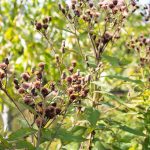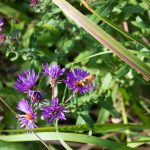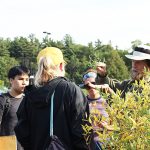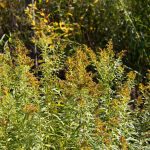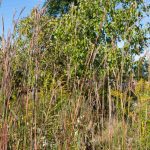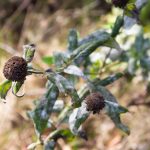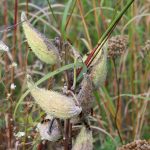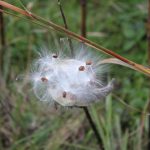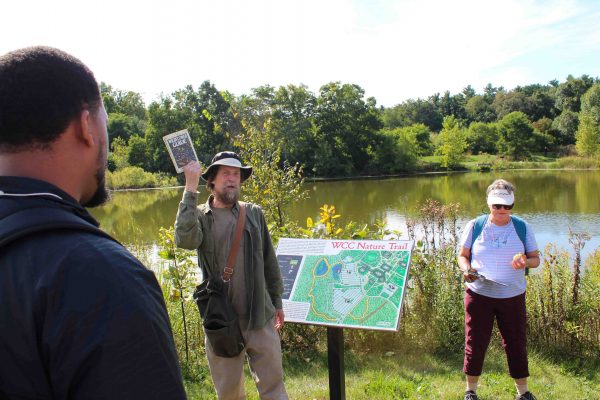
Greg Vaccavek, a native species expert, led an educational nature walk through the WCC nature area for students. He focused on pollinator-attracting plants native to Michigan. Lilly Kujawski | Washtenaw Voice
By Lilly Kujawski
Editor
Washtenaw Community College’s nature area and trail is a human-created ecosystem that is intentionally made up of Michigan-native plants.
Greg Vaccavek, a native plant nursery owner and wildflower expert, was a consultant for determining the native seed mix to be used for the WCC nature area.
All plants are native to the planet, so when talking “native plants,” it’s really about the scale of the location, Vaccavek said.
While all plants are generally considered “good,” the problem with plants not native to a specific area is that they aren’t particularly helpful for that ecosystem and may overrun the area, according to Vaccavek.
About 90% of our insects are specialists that have found a way to utilize the local plants, Vaccavek said. Because of this, it’s important that plants native to this area are available for various pollinators, like bees, butterflies, and even some beetles and birds.
There are hundreds of species of bees in Michigan, Vaccavek said. He added that pollinators have a very specific relationship with the wildflowers in Michigan.
In Michigan, there are over 2,000 species of native plants, he said.
There are many perennial plants growing in the WCC nature area. Over time, the perennials have helped improve the soil in the nature area, Vaccavek said. Deep-rooted perennials are especially effective in making clay-like soil better and more productive for plants over time, he added.
Here are some of the pollinator-attracting native plants growing in the WCC nature area.
- Ironweed is a pollinator-attracting plant native to Michigan. Lilly Kujawski | Washtenaw Voice
- A bee pollinates purple aster flowers. Lilly Kujawski | Washtenaw Voice
- Greg Vaccavek, a native plant expert with a degree in natural resources, demonstrates how common ragweed is wind-pollinated, often causing hay fever symptoms. Ragweed tends to grow in disturbed soil. Lilly Kujawski | Washtenaw Voice
- There are more than 30 species of goldenrod in Michigan. Goldenrod is often blamed for hay fever, but actually doesn’t contribute any airborne pollen. Goldenrod flowers at the end of the summer, so it is considered the “last call” plant for pollinators. Lilly Kujawski | Washtenaw Voice
- Big blue stem is a grass native to Michigan. Lilly Kujawski | Washtenaw Voice
- Bee balm, also called wild bergamot, is a native plant that attracts bees, butterflies and hummingbirds. Lilly Kujawski | Washtenaw Voice
- The monarch butterfly population depends solely on milkweed, pictured, to feed its young. Milkweed is a perennial plant. Lilly Kujawski | Washtenaw Voice
- The monarch butterfly population depends solely on milkweed, pictured, to feed its young. Milkweed is a perennial plant. Lilly Kujawski | Washtenaw Voice

